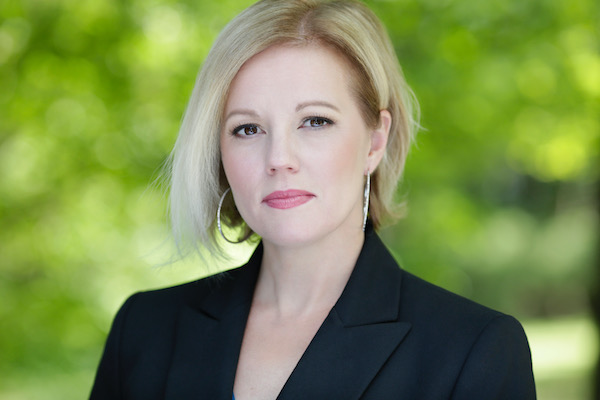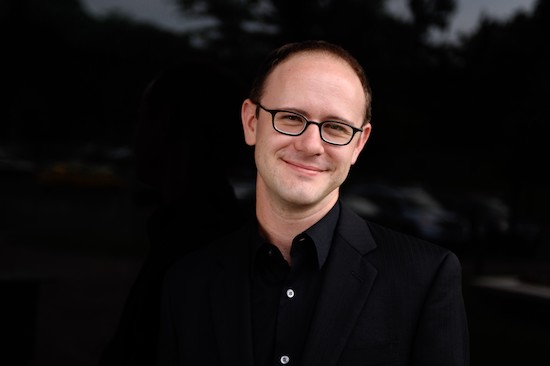Wolf Trap finds an operatic solution to summer closure

After a three-month shutdown to mitigate the Covid-19 crisis, the District of Columbia finally moved into Phase 2 of reopening this week. The guidelines for Phase 2 state that “theaters, cinemas, and entertainment venues may apply for a waiver to hold arts, entertainment, or cultural events.”
Still, most local classical music presenters have cancelled all summer performances, pinning their hopes on a potential vaccine that allows a judicious reopening in the fall.
Yet Wolf Trap has devised a plan for the summer that stands out among local presenters for its daring and ingenuity.
Faced with growing uncertainty about the pandemic, Wolf Trap Foundation of the Arts had already cancelled its entire summer season. So many touring acts and artists cancelled that it made the expense of opening the Filene Center and having a season too expensive.
In addition to weeks of popular music events at the venue’s outdoor theater, the Filene Center, this meant cancelling the staged productions planned by the Wolf Trap Opera Company.
This summer’s operas included Tchaikovsky’s Eugene Onegin, Henze’s Elegy for Young Lovers, and Puccini’s La Bohème, as well as a song program with Steven Blier and a Puccini/Verdi aria concert with the National Symphony Orchestra.
Lee Anne Myslewski, vice-president for opera and classical programming at Wolf Trap, confirmed that the company cannot simply reschedule this summer’s season for 2021.
“A number of our singers have contracts and plans for 2021,” she explained. “We’re all hoping that they’re able to make those contracts and do those roles. So what we are doing is starting with the singers we have this summer who are willing and interested to return to us next year and starting that reprogramming process again to start reconstituting this group.” (It is not yet clear if or how the company will conduct its normal auditions tour in the fall.)
Even though there will be no live performances, Wolf Trap Opera is still planning to bring this year’s class of young artists to Virginia for its summer training program. Singers in both tiers of the program, the Filene Artists and the Studio Artists, will receive the regular range of professional guidance in many areas, including language coaching, stage presence, body movement, stage combat, and audition skills. Mezzo-soprano Denyce Graves will conduct a master class that will be live-streamed to the public.
“We have worked out a fairly intense set of protocols that we feel will allow us to do this safely,” said Myslewski, beginning with a two-week quarantine period when the young artists all arrive from different locations on June 30. “It’s a little bit of the theatrical/touring model, where we’re hoping to create a bubble of people, so that we can work a little bit more closely together and try to keep that bubble safe and healthy throughout their six weeks here.”
One unusual benefit for singers this year is that there are a number of other Wolf Trap alumni who have committed to working with the young artists during this unexpected free time.
“It’s a pretty starry list,” Myslewski said. “Christine Goerke, Michelle DeYoung, and Eric Owens, who have all been artists-in-residence in the past, will be on board, along with Tamara Wilson, Jamie Barton, Kate Lindsey, David Portillo, and Ryan McKinny.”
According to Myslewski, 15 of the 18 Filene Artists invited to take part in the program this summer have agreed to participate. Those who could not, for reasons involving international travel or health concerns, will be included as much as possible in virtual activities. Myslewski has been keeping in touch with the singers week to week, and she says everyone is invested in figuring out how to make the process work well and safely.
“One of the bright spots,” she explains, “is that we’re able to bring people together to make art. Many of them have called it a lifeline, and not just a financial one, which we all know it is, but an artistic one, too. Just to have something to work toward, that we’ll find a way out of it somehow. That does make it worth getting up in the morning.”

One of the people who will be inside the bubble with the young artists is Grant Loehnig, Wolf Trap’s music director. He and three other pianist-coaches will provide the musical training and accompaniment, along with some young artists themselves training as coaches. During the quarantine period, the young artists will be separated from one another, working remotely on language coaching and business aspects of the industry, like finances, nutrition, and managing social media.
“We are planning on doing some musical coaching,” Loehnig said, “but it’s quite difficult to do that remotely because of the lag. Those who are there in the hotel with the artists will have keyboards in our rooms, so we can certainly talk about musical things, about language, interpretation.” When the quarantine ends on July 13, all those in the bubble will be able to work together in person for the rest of the program.
The singers in both tiers of the program will work on arias and scenes that will be presented to the public virtually. “We will capture them and put them out digitally,” Myslewski added, “because that is going to be the only collateral that the singers have for this summer. We have to give them something to show what they’ve done with us this summer.” One of the more important benefits is the chance to sing for a panel of opera professionals from other companies.
“We will be doing two audition days for our singers with an international panel,” Myslewski explained. “We will be livestreaming the actual audition, so that they can see it and hear it in real time.” The video portion will be followed with high-quality audio recordings, an attempt to give an accurate picture of both visual and auditory elements. Many of these events will be made available to the public in recorded form in late July and early August, complementing a series of recordings of productions from previous seasons.
Check Wolf Trap’s website for future links to recorded content. wolftrap.org
